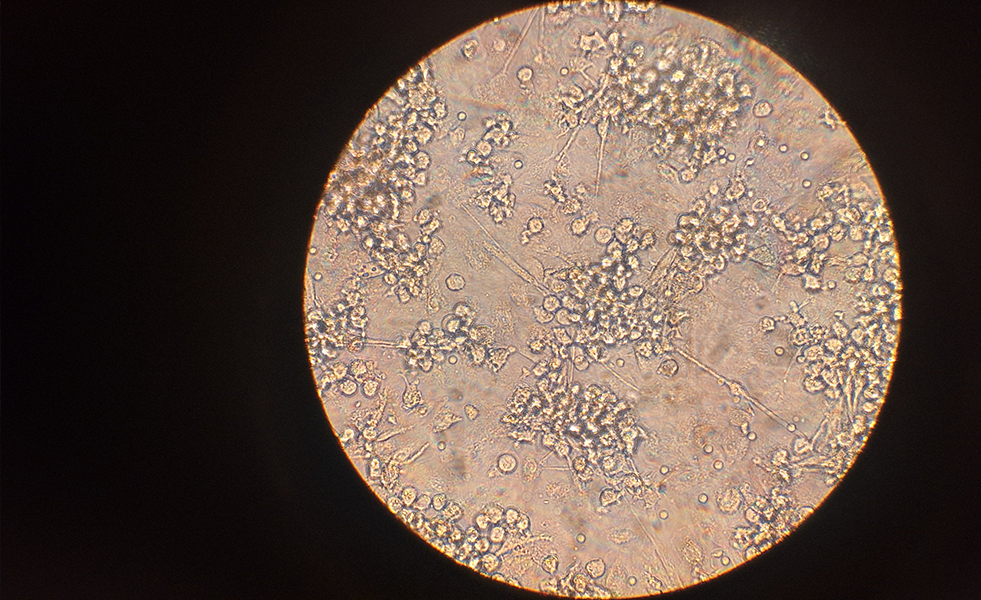
Rebekka Salzman: Exploring macrophage – tumour interactions in the Egger lab
- Post by: fantom
- 20 August 2025
- No Comment
During my time in the Egger Lab at the “Medizinische Universität Wien”, I had the pleasure of working with Kristina Draganić to isolate primary macrophages from the whole blood of healthy donors. Working with primary cells, unlike immortalized cell lines, presents unique challenges due to their finite lifespan. However, they offer a far more accurate reflection of the tumour microenvironment found in patients, thus providing results with greater clinical relevance. Macrophages, in particular tumour-associated macrophages, can promote tumour progression by enhancing angiogenesis, suppressing immune responses, facilitating invasion and metastasis, altering immunometabolism, and supporting cancer stem cell properties.
Once isolated from the blood, the macrophages were polarized into two phenotypes – with M-CSF only, to generate undifferentiated macrophages and with M-CSF followed by IL-4, to produce alternatively activated macrophages, also referred to as tumour-associated macrophages.
We then co-cultured these macrophages with ALK+ ALCL cell lines (Karpas299 and SupM2) using a setup that allowed only the exchange of secreted factors in both directions. Then, both the tumour cells and macrophages were collected after 24, 48, and 72 hours. These experiments were repeated 3 times with the macrophages of different donors to increase the confidence in our results.
Back in my home lab In Padova, I will extract the total RNA from these cells and perform mRNA sequencing. By measuring the mRNA expression levels, we try to uncover the molecular mechanisms underlying the early to late responses of ALK+ ALCL cells to signals from different macrophage states – undifferentiated or alternatively activated. This will help us understand which molecular “programs” are activated in the cancer cells upon signalling from macrophages and how the cancer cells in return reprogram the macrophages to create a tumour-supportive, immune-suppressive niche.
I am very grateful to Gerda Egger for hosting me, to Kristina Draganić for her expertise and guidance, and to the lab members for their stimulating discussions and shared laughter over lunch. Most of all, thank you to the generous blood donors whose contributions made this work possible.

